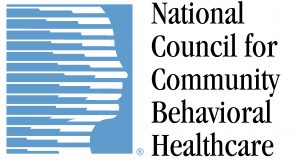Modern medical innovations have done much to help older individuals live longer, healthier, more comfortable lives. However, many of the same medications that control age-related aches and pains can also place seniors in the grip of addiction. Many seniors also develop a dependency on alcohol to self-medicate physical or emotional distress.
If you suspect that an elderly loved one may struggle with chemical dependence, or if you yourself have developed such a dependence as you’ve grown older, you need to understand the risks, trouble signs, and potential treatments associated with this challenge. Check out the answers to these frequently asked questions about seniors and chemical dependence.
How Many Seniors Struggle With Substance Abuse?
Drug abuse and addiction have developed into major problems for U.S. seniors. Some 2.5 million older Americans struggle with addiction to alcohol or other drugs. Substance-related issues account for 14 percent of emergency room admissions and 20 percent of admissions to psychiatric hospitals among this segment of the population.
What Drugs Do Seniors Tend to Abuse Most Frequently?
Alcohol represents the most abused substance among seniors. Alcohol abuse or addiction occurs in nearly 50 percent of nursing home residents, while widowers aged 75 and over have the highest rate of alcoholism among any segment of the U.S. population.
Prescribed medications can also lead to a pattern of abuse and dependence. In some cases, a confused senior might take more of a given medication without even realizing it; in others, increases in tolerance might compel ever-increasing dosages. Abused prescription medications include opioid pain drugs and benzodiazepines.
Why Do Abused Drugs Pose Special Problems for Seniors?
As the body ages, its responses to various substances changes. A slower metabolism, for instance, can alter the length of time a drug remains active in the body or brain. Other age-related medical issues can also interfere with the normal breakdown of such substances, causing the substances to have stronger-than-expected effects.
Many seniors take multiple medications to cope with various chronic health challenges, from high blood pressure and mood disorders to chronic pain. These substances can interact in ways that exaggerate their effects or prevent their normal breakdown in the body.
Why Does Senior Chemical Dependency Often Go Untreated?
To the untrained eye, the effects of chemical abuse or dependence may not appear too different from other age-related behavioral changes. For instance, mental confusion induced by a heavy dose of a drug could resemble age-related dementia, while drug-induced unsteadiness could get chalked up to vision or balance problems.
Many seniors don’t interact with others regularly enough even to put these symptoms on display. Seniors who have retired from work, avoid public activities, and live alone may cultivate a problem without anyone on hand to notice. Those who do notice may hesitate to say anything about a senior’s drug dosages or drinking habits.
How Can You Help a Senior Loved One With a Chemical Dependence?
If your senior loved one appears to suffer from a chemical dependence issue, you may fear that the loved one will dismiss or scorn your feelings on the matter. You may have better luck staging an intervention, with multiple loved ones gathering to express their concerns and urge the loved one to seek treatment.
Treatment for chemically-dependent seniors involves the same basic techniques as treatment for other segments of the population, although some facilities cater specifically to seniors. Treatment may include a combination of doctor-supervised detox, a residential stay, outpatient care, and ongoing education, counseling, and support.
Clearview Recovery Center’s specialized skills, experience, and compassionate approach to treatment can help you or any senior in your life break free from chemical dependence. Contact us today to learn more and set up a consultation.





